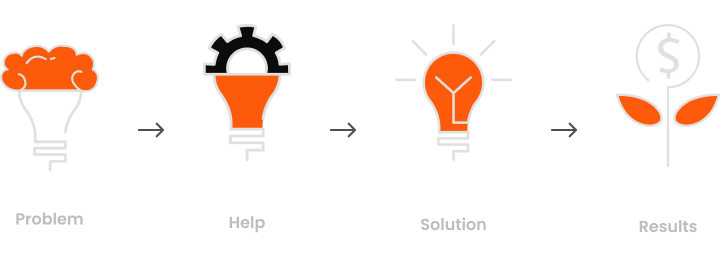
Our partner has been working in industrial materials for decades. This industry is focused on buying and selling raw materials using traditional practices and complex processes that are deeply ingrained and a challenge to evolve. Prior to our involvement adoption of technology had been a slow process for most companies in the industry.
For the past 3 years, Ballast Lane has helped design, build, and scale digital products for this client. After working together our partner:
- Secured $75M Series B Funding which brought its valuation to $750 million
- Celebrated its third and strongest year yet, with revenue up more than 7x over the previous year

Problem:
Our partner’s team, consisting of industry experts, identified the key challenges in the buying and selling of industrial materials.
- Inefficient Buying & Selling: Transactions were happening over phone and email that are by nature slow, manual, and prone to errors, resulting in increased costs and delays.
- Fragmented Supply Chain: The current supply chain is fragmented, with multiple intermediaries involved in the process of buying and selling industrial materials. This results in increased costs and longer lead times for buyers and sellers.
- Limited Access to Information: Buyers and sellers have limited access to information about available products, prices, and market trends.
- Lack of Transparency: The lack of transparency in the buying and selling process makes it difficult to establish trust, resulting in a slower adoption of new technologies.
How We Helped:
Ballast Lane’s team of 20+ digital product designers and builders complimented the team's industry knowledge to design and build a platform that would solve the key problems in the industry.
- Define: Define the problem statement and MVP's objectives. This involves synthesizing the insights gathered from the user research and identifying the core problems that the MVP should address.
- Ideate: The ideation phase involves generating a wide range of ideas to solve the problem. It encourages brainstorming, mind mapping, and other creative methods to develop multiple solutions for the MVP.
- Prototype: Prototyping involves creating low-fidelity mockups of the MVP to test and refine the product's features and user experience. This helps to validate the ideas generated in the ideation phase and identify any usability issues that need to be addressed.
- Test: The final step in design thinking is to test the MVP with target users to identify any issues or areas for improvement. This involves gathering feedback from users and using analytics tools to measure user engagement, retention, and conversion rates.
- Build and Launch: After gathering feedback from the MVP, prioritizing features, and developing a roadmap, Ballast Lane built and launched web and mobile digital solutions. This allowed our partner to be the industry's first marketplace that solved the toughest industrial supply chain challenges.
Solution:
Key features of the platform include:
- Transparent Product Information: Provide users with transparent and detailed information about each product, including specifications, certifications, and images.
- Negotiation Tools: Enable users to negotiate prices and terms with potential buyers and sellers through an intuitive and secure interface.
- Market Level Data: Provide users with up-to-date market data and insights, including pricing trends, demand-supply dynamics, and industry news.
- Material Level Data: Provide users with detailed data on individual materials, including availability, specifications, and suppliers.
- Optimized Selling and Buying: Use advanced algorithms and machine learning to optimize the process for users, including suggesting relevant products and buyers/sellers based on their preferences and transaction history.
- Easy Search and Filtering: Provide users with an intuitive and easy-to-use search and filtering interface to quickly find the products they need based on their specifications, location, and other preferences.
- Analytics and Insights: Provide users with analytics and insights on their transactions and performance to help them optimize their selling and buying strategies.
- Mobile App Support: Offer a mobile app that allows users to access the marketplace on the go and stay up-to-date with their transactions and performance.
Companies in traditional industries can benefit from digital innovation through thoughtful design and development, leading to efficiencies and customer satisfaction.
